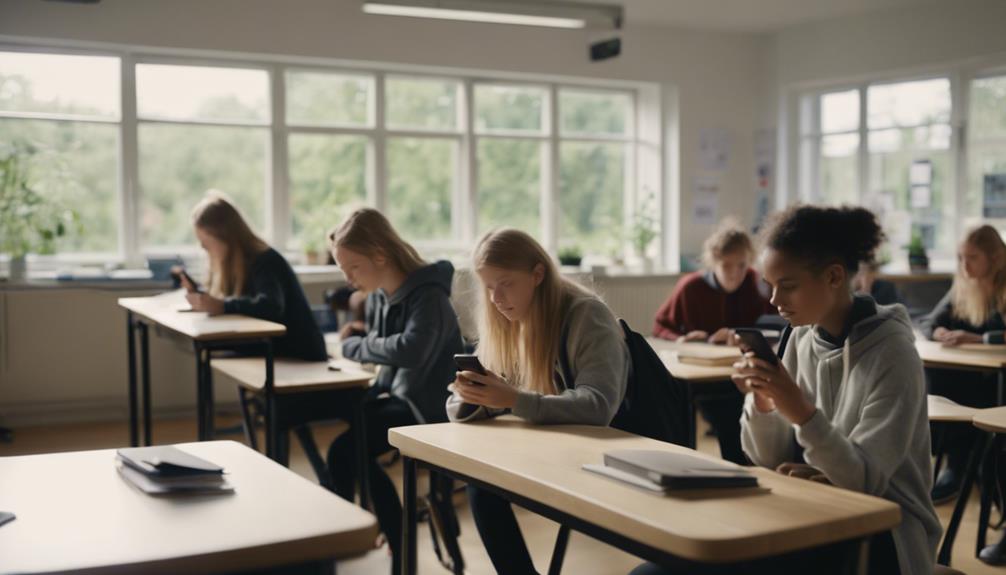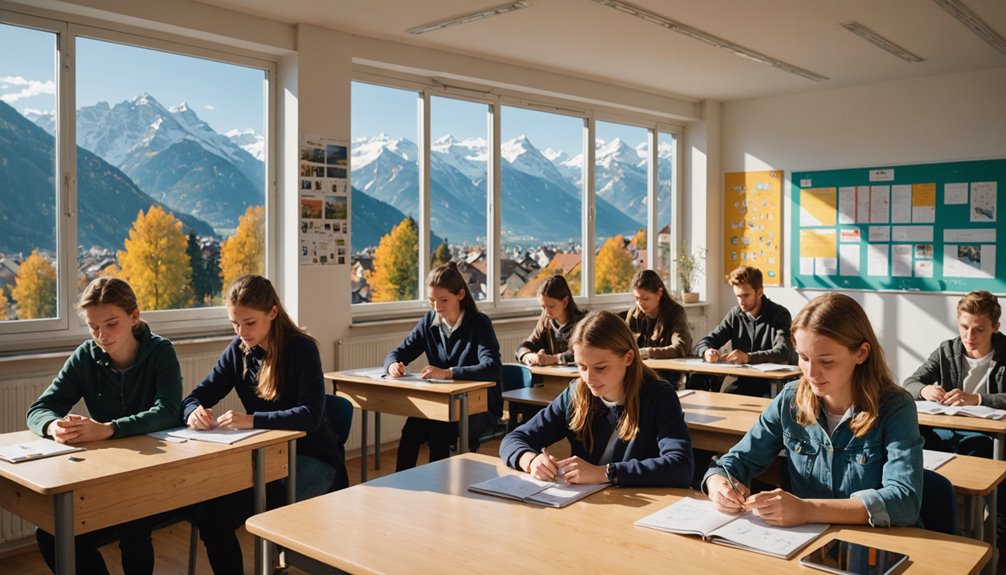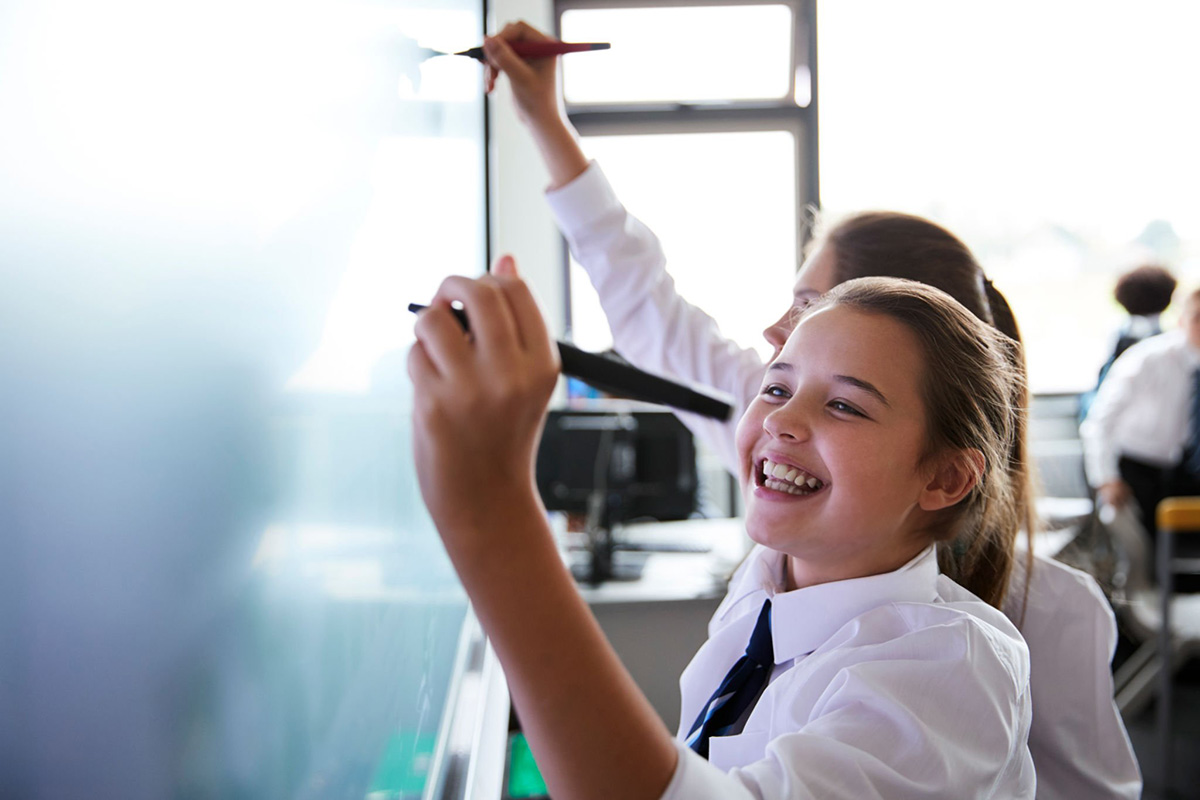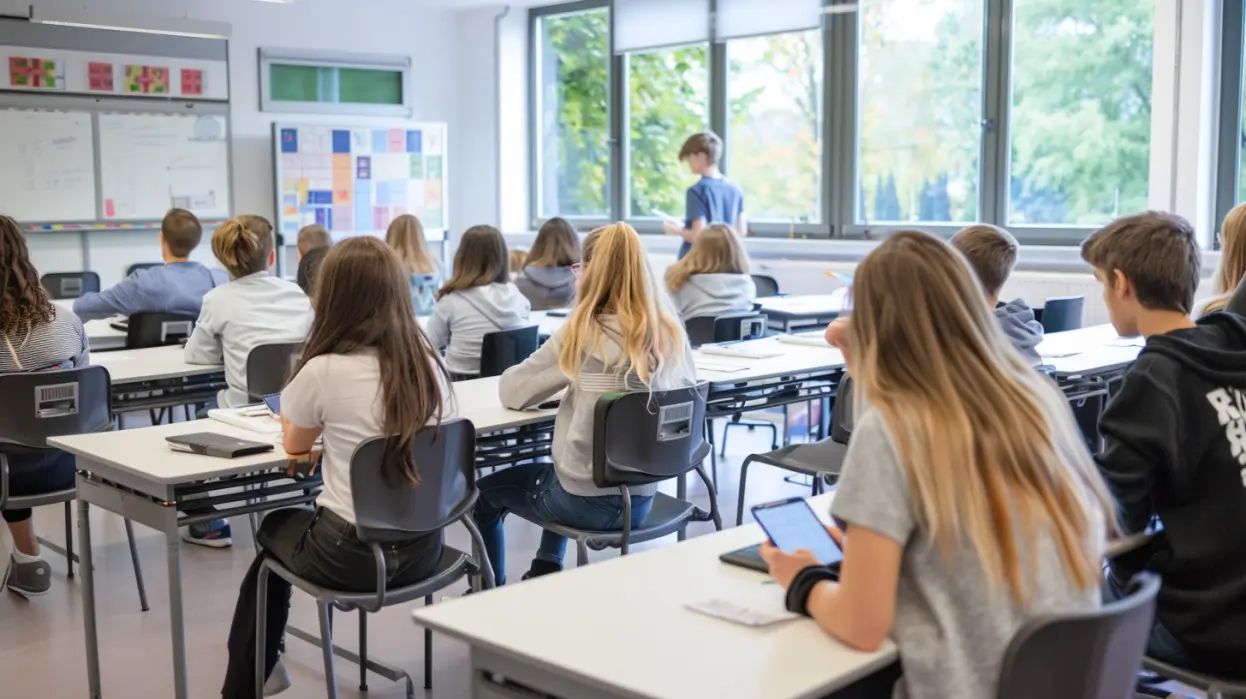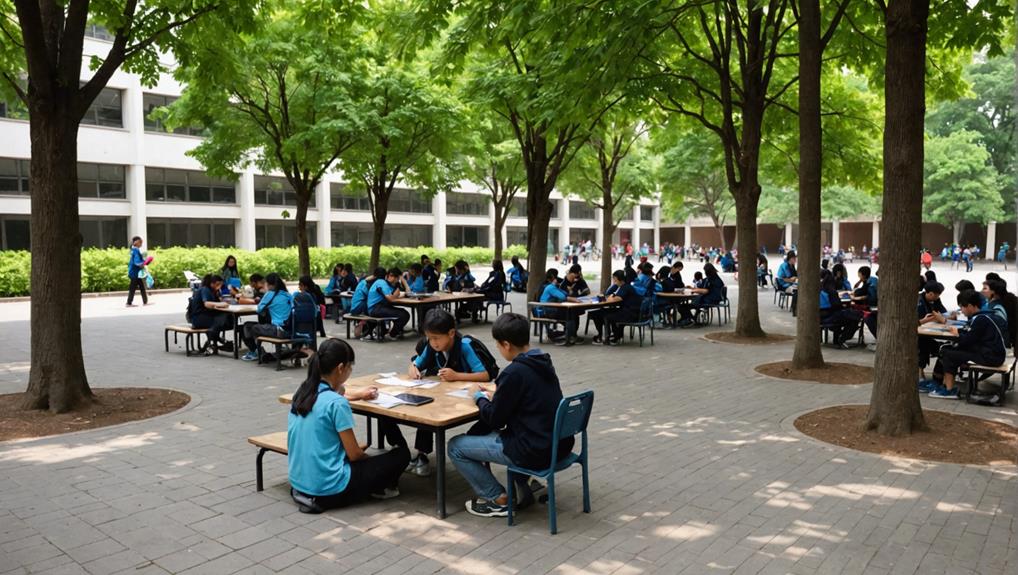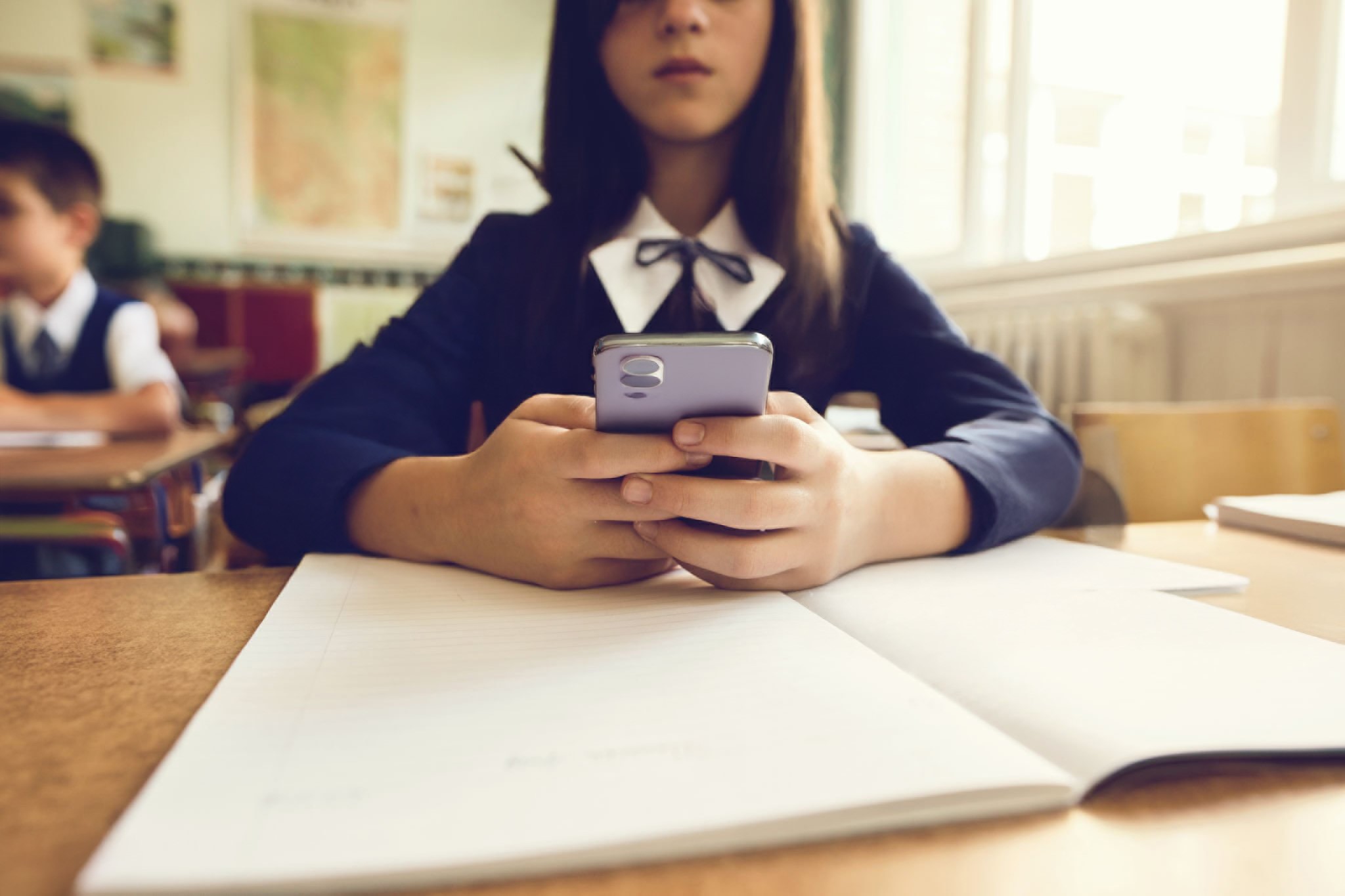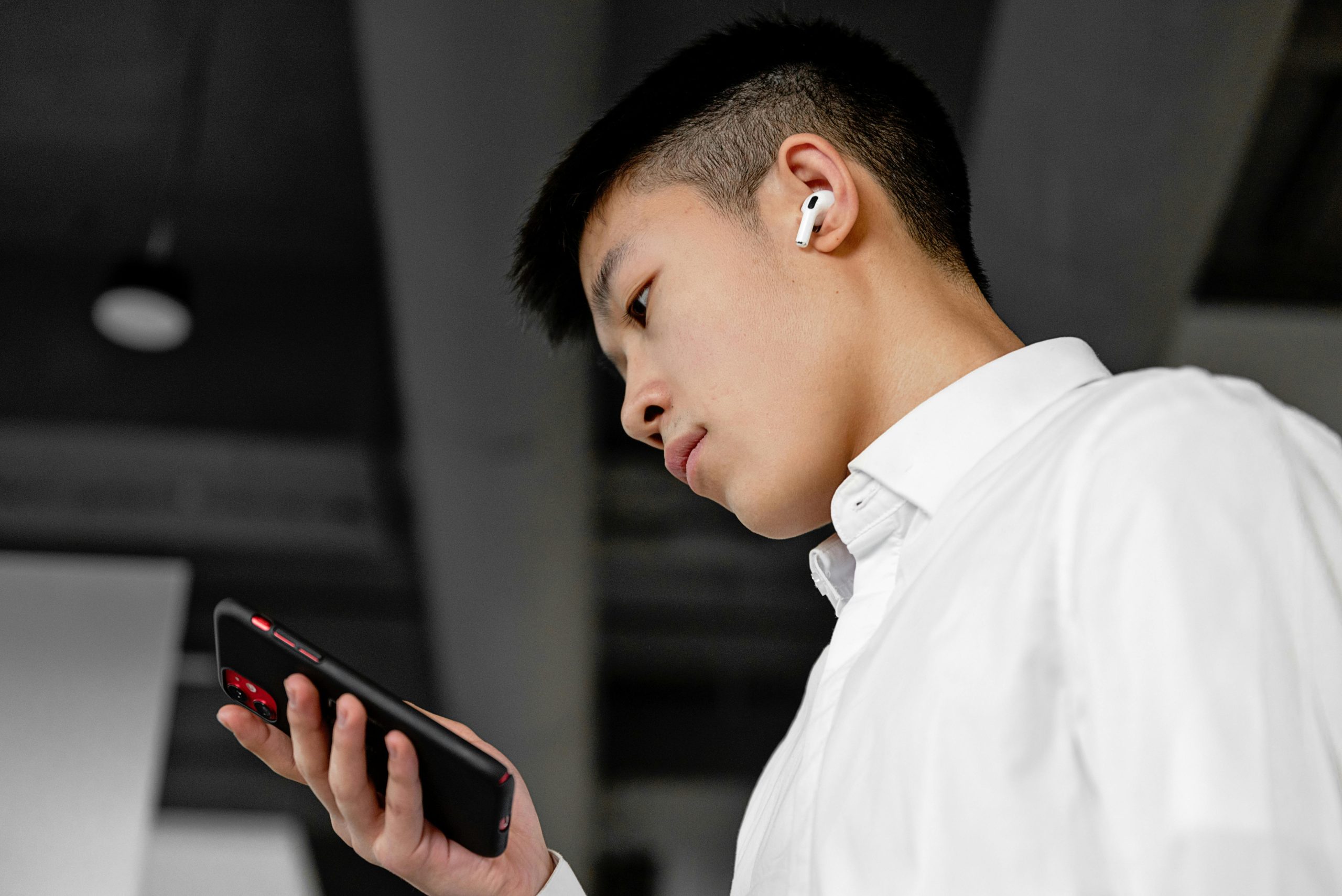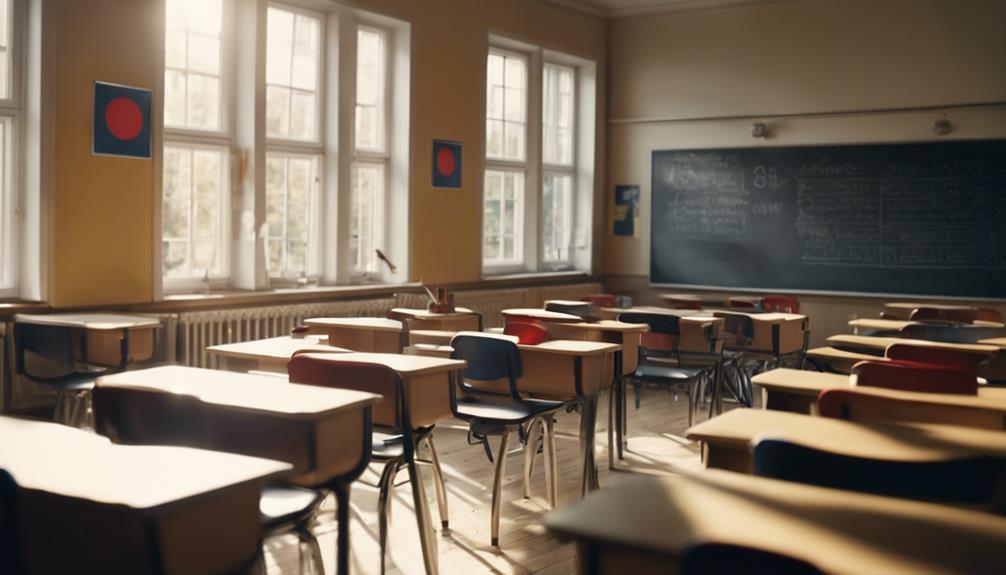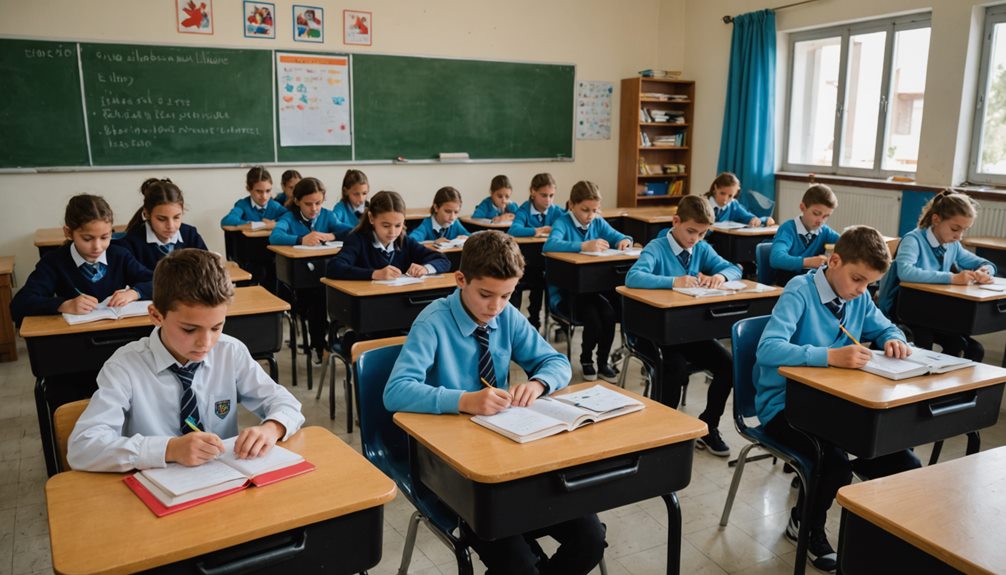Mobile Phone Use in Danish Schools
Mobile Phone Use in Danish Schools
Mobile phone use in Danish schools is primarily managed through decentralized policies that allow individual schools to tailor rules to their specific needs. Approximately 88% of schools have established their own regulations, often in consultation with parents, to reduce classroom distractions. While some schools implement strict bans, others adopt controlled usage to leverage educational benefits.
Because France passed a law banning schoolchildren from taking phones into class, it has sparked discussions in Denmark about their own approach to mobile phone use in schools. This nationwide policy in France aims to eliminate distractions and improve the learning environment comprehensively.
The Danish Ministry of Education supports these individualized approaches, citing their effectiveness in maintaining focus and calm. Debates continue about the balance between minimizing distractions and enhancing digital literacy, underscoring the nuanced impact of mobile phone policies in education. Additional insights can provide a deeper understanding of these dynamics.
Key Takeaways
- Danish schools have decentralized mobile phone policies, with 88% implementing their own rules.
- Policies aim to reduce distractions and improve focus during school hours.
- The Danish Ministry of Education supports school autonomy in regulating mobile phone use.
- Schools involve parents in policy-making to align with family expectations.
- Mobile phones can enhance digital literacy and access to educational resources when used responsibly.
The Current State of Mobile Phone Policies in Danish Schools
The current state of mobile phone policies in Danish schools reflects a shift toward localized, mobile-free environments, with 88% of schools setting their own rules to reduce distractions and enhance focus.
Denmark, known for its early adoption of digital tools in education, is now seeing a trend toward “mobile-free school” policies, where students often hand in their phones at the start of the school day. This policy change aims to foster face-to-face communication, strengthen social interactions, and reduce students’ dependency on digital devices for socializing.
Parental involvement plays a pivotal role, ensuring that school policies align with family expectations and values, creating a collaborative atmosphere between schools and homes. Schools report that limiting mobile phone usage improves both academic performance and student engagement, allowing for a more focused and interactive learning environment.
Moreover, recognizing the importance of digital literacy, many schools integrate controlled use of smartphones in educational activities, promoting balanced technology use. This approach helps students develop proficiency in digital tools while learning the importance of moderation.
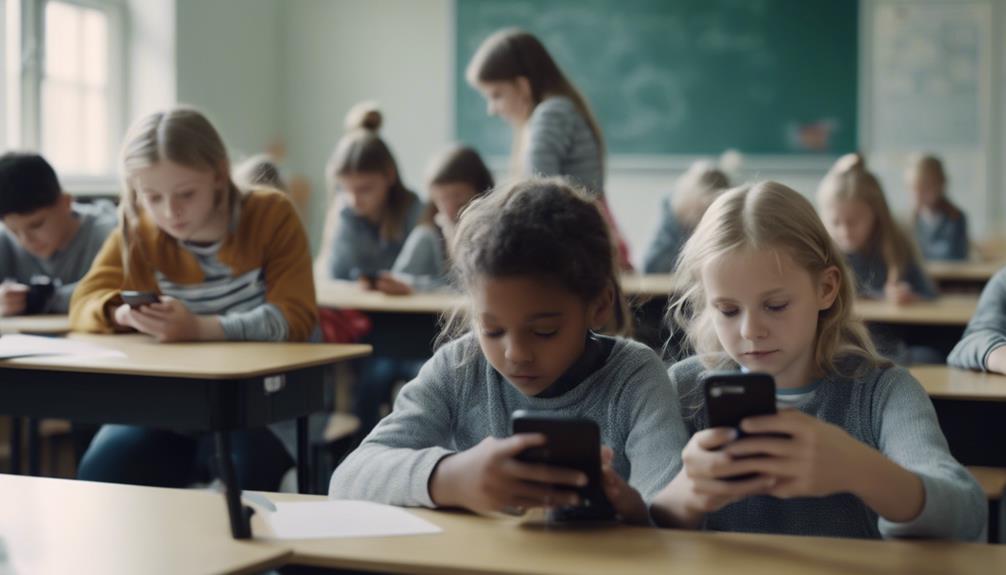
Arguments for a Mobile Phone Ban
Advocates of prohibiting mobile phones in schools, like Rasmus Lund-Nielsen of the Moderate party, argue that these devices disrupt classroom environments to a great extent and hinder students’ cognitive development and social interactions. Lund-Nielsen emphasizes that the presence of mobile phones can greatly reduce students’ ability to focus on academic tasks, thereby negatively impacting academic performance.
Research supports these concerns, indicating that increased screen time is linked with poorer mental health and decreased student engagement. By removing mobile phones from the classroom, advocates believe that students would experience improved focus and more meaningful social interactions, both of which are vital for cognitive and emotional development.
Furthermore, proponents assert that the absence of mobile phones can foster a more conducive learning environment, allowing students to engage more deeply with educational content and participate actively in classroom discussions. This enhanced level of student engagement is essential for developing critical thinking skills and achieving higher academic performance.
Additionally, the reduction in distractions provided by mobile phones is seen as a potential boost to students’ mental health, as it minimizes the constant comparison and social pressure perpetuated by social media platforms.
Arguments Against a Blanket Ban
While advocates for a ban emphasize the disruptive nature of mobile phones in classrooms, critics argue that an outright prohibition may overlook the potential benefits these devices can offer when integrated responsibly into educational settings. Representatives from student organizations, such as Marie Holt Hermansen of Danske Skoleelever, highlight that mobile phones, when used appropriately, can enhance digital literacy and promote technological integration in the curriculum. By learning to manage their device use, students can develop essential skills that are pivotal in a technology-driven world.
Moreover, critics assert that parental involvement is optimized through mobile phone use, allowing for immediate communication between parents and students when necessary. This aspect is particularly significant in emergencies, where quick coordination is crucial. Additionally, critics believe that a blanket ban may compromise student autonomy, as it fails to teach students how to balance technology with their educational responsibilities.
Although classroom distractions are a valid concern, critics contend that structured guidelines and monitored use, supported by tools like Phonelocker pouches, can mitigate these issues, turning mobile phones into valuable educational tools rather than sources of disruption. By fostering an environment where students can use mobile technology responsibly, schools can prepare them for the demands of modern society.
Although classroom distractions are a valid concern, critics contend that structured guidelines and monitored use, supported by tools like lockable phone pouches, can mitigate these issues, turning mobile phones into valuable educational tools rather than sources of disruption. By fostering an environment where students can use mobile technology responsibly, schools can prepare them for the demands of modern society.

The Ministry of Education’s Position
Although the Danish Ministry of Education endorses clear guidelines to foster effective learning environments, it ultimately delegates the authority to regulate mobile phone use to individual schools. This ministry stance reflects a supportive approach that values school autonomy, allowing institutions to tailor policies that best suit their unique student populations and educational contexts.
Minister of Education Merete Riisager has praised the existing school-specific policies, underscoring their positive impact on maintaining calm and focus in classrooms while promoting social interaction during breaks.
This framework of individual decisions empowers schools to innovate and adapt their approaches to mobile phone use, striking a balance between leveraging technology as an educational tool and minimizing potential distractions.
School-Level Mobile Phone Policies in Danish Schools
Many Danish schools have proactively established their own mobile phone guidelines to reduce distractions and enhance the educational setting. These guidelines are crafted to address key issues such as student distraction, classroom disruptions, and peer influence, while also considering the potential benefits of technology integration.
Schools like Denmark Senior High School, for example, have strict rules that prohibit mobile phone use during school hours, except for medical or teacher-directed educational purposes. This approach aims to minimize unnecessary distractions and promote a focused learning atmosphere.
Parent involvement is essential in the enforcement of these guidelines. Schools often involve parents to ensure that the rules are understood and supported both at home and in the classroom. This collaboration helps in reinforcing the importance of limiting phone use to maintain the academic integrity of the school environment.
While some schools opt for complete bans, others collect phones at the beginning of the day to reduce classroom disruptions. This strategy not only reduces distractions but also eases peer influence among students to participate in non-educational phone activities.
While some schools opt for complete bans, others use Phonelocker pouches to enforce these rules effectively. These pouches allow students to securely store their phones during class time, minimizing disruptions while keeping the devices easily accessible when needed. This approach not only supports a focused learning environment but also ensures that phones are safeguarded against loss or damage. Schools that implement such solutions find that it helps balance the need for digital literacy with the benefits of reducing classroom distractions.

Potential Future Developments
As Danish schools continue to refine their mobile phone policies, potential future developments may include a national framework providing more standardized guidelines to guarantee consistency across educational institutions. This framework could address several key areas to enhance education while ensuring the well-being of students.
Parental involvement: Engaging parents in policy-making processes could ensure their perspectives and concerns are considered, fostering a collaborative approach to mobile phone use in schools.
Technological integration: Leveraging mobile phones as educational tools can promote interactive and innovative learning experiences, provided the devices are used under well-defined guidelines. This approach necessitates thorough teacher training to equip educators with the skills to integrate technology effectively into their teaching practices.
Mental health considerations: Addressing the impact of mobile phone use on students’ mental health is important. Policies may include measures to balance screen time and encourage activities that promote social interaction and physical well-being, thereby supporting students’ holistic development.
From the student perspective, a balanced approach that incorporates their views could lead to policies that are more effective and better received.
Frequently Asked Questions
Like a double-edged sword, international comparisons reveal that mobile phone bans can reduce student distractions, bolster academic performance, enhance social interactions, and improve mental health, yet the effectiveness varies greatly across different educational contexts and cultural norms.
Read Also: Australia Bans Mobile Phones in Class
Parents’ opinions on mobile phone use in schools vary, with concerns about academic distractions and communication barriers. However, many also recognize potential educational benefits and the development of social skills through controlled and innovative phone use.
In 88% of schools, confiscated phones are stored securely, often using tools like phone pouches, ensuring student accountability through tracking systems. Parental involvement is vital, and schools implement clear policies for phone returns, emphasizing structured procedures to manage and return devices efficiently.
Exceptions to mobile phone bans for emergencies are typically outlined in school policies. Parent concerns and student safety are prioritized, with teacher discretion allowing phone use in emergency situations to guarantee a responsible and secure environment.
In the symphony of classroom management, teachers play an important role in enforcing mobile phone policies through thorough teacher training, fostering student discipline, enhancing parent communication, integrating technology, and minimizing classroom distractions to optimize academic performance.
Conclusion
The debate over mobile phone use in Danish schools remains unresolved, reflecting divergent views on their impact on education and social interaction.
While some advocate for a ban to enhance cognitive focus, others highlight the educational benefits and modern necessity of such devices.
With 88% of schools having established their own policies, the Ministry of Education’s stance on localized decision-making prevails.
The question remains: will a national consensus emerge, or will school-specific policies continue to dominate?


